

— Products —
 Consumer hotline +8618073152920
Consumer hotline +8618073152920 WhatsApp:+8615367865107
Address:Room 102, District D, Houhu Industrial Park, Yuelu District, Changsha City, Hunan Province, China
All products
soil test sensors in agricultural production can help people understand the soil condition, develop reasonable fertiliser, irrigation, soil improvement and other plans to improve crop yield and quality, while reducing resource waste and environmental pollution. In the future, with the continuous development of technology, the accuracy and stability of soil test sensors will be continuously improved, and more new types of sensors will also appear.
Tel/WhatsApp:+8615367865107
Email:Arvin@niubol.com +Nearly 100 partner companies in more than 68 countries. We are committed to providing high-quality, practical products to meet your needs and help you solve problems. Our products comply with international standards and are certified with ISO, CE and RoHS.Product Details
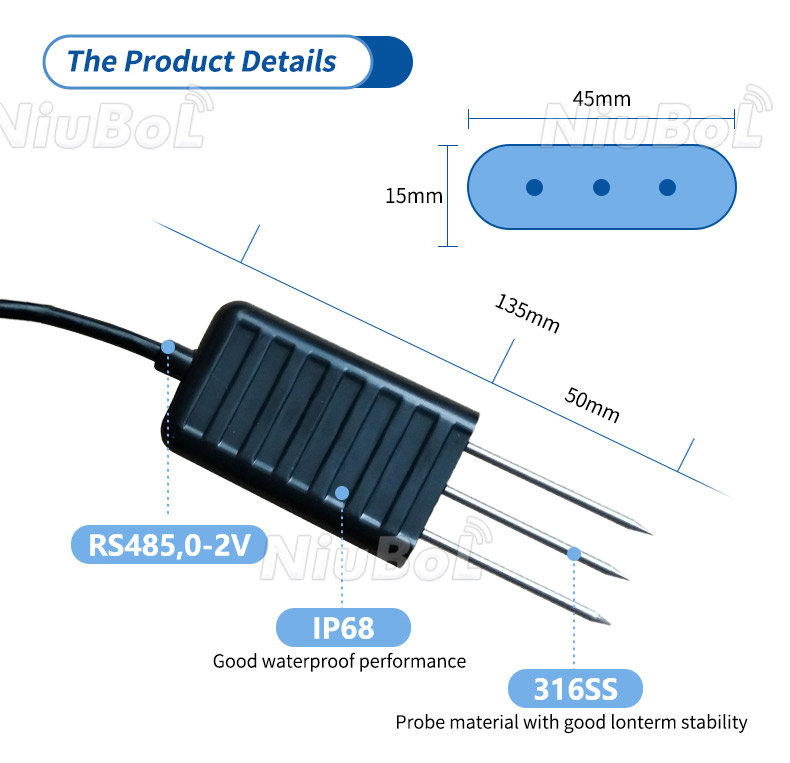
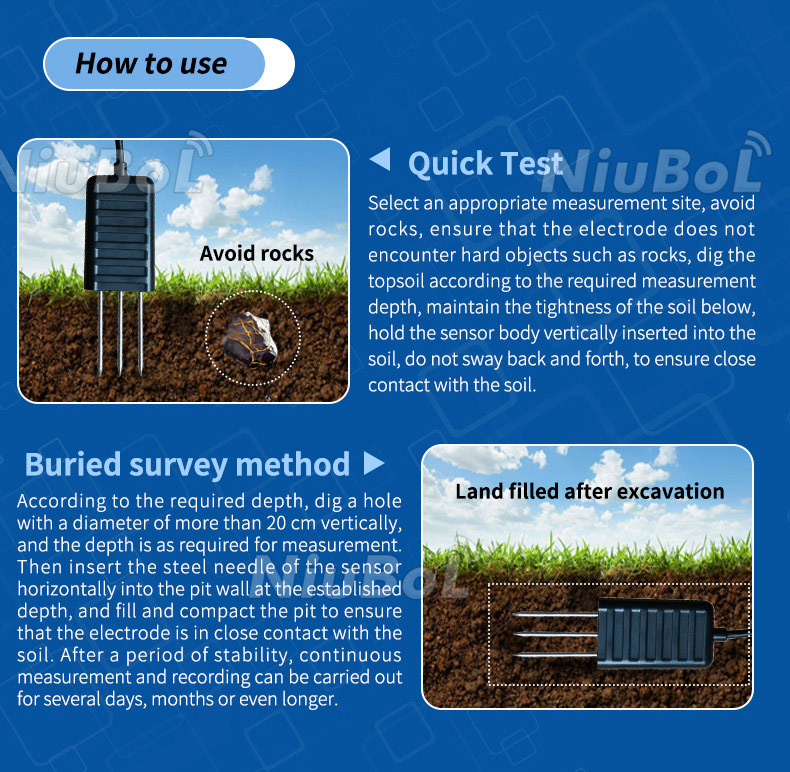
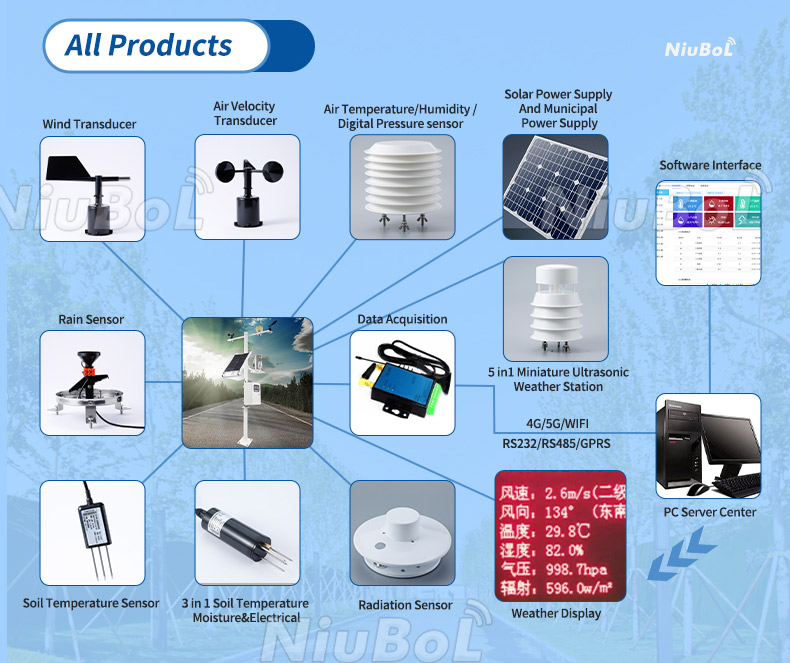
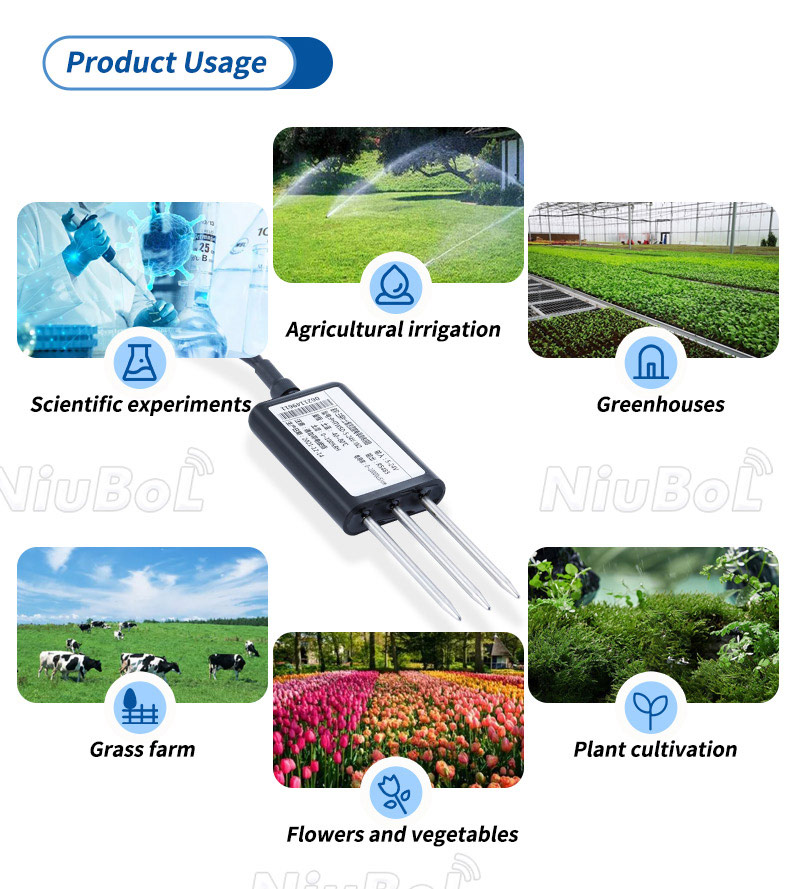
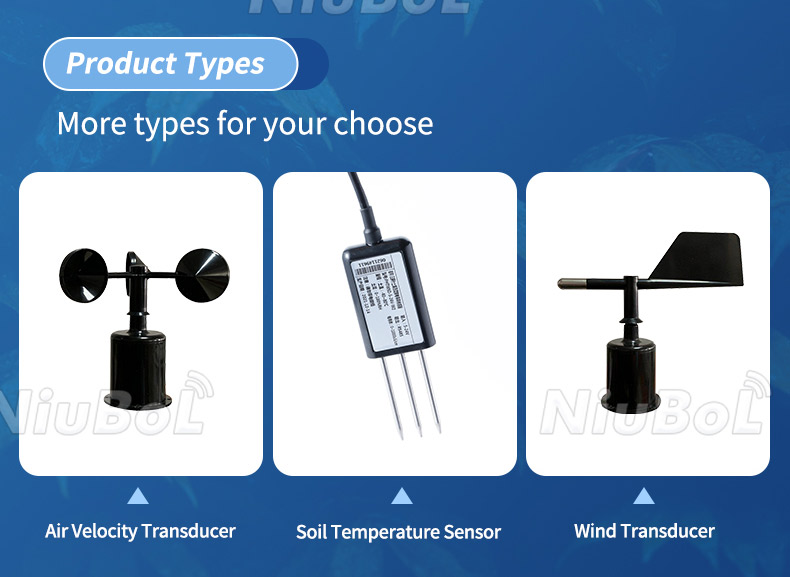
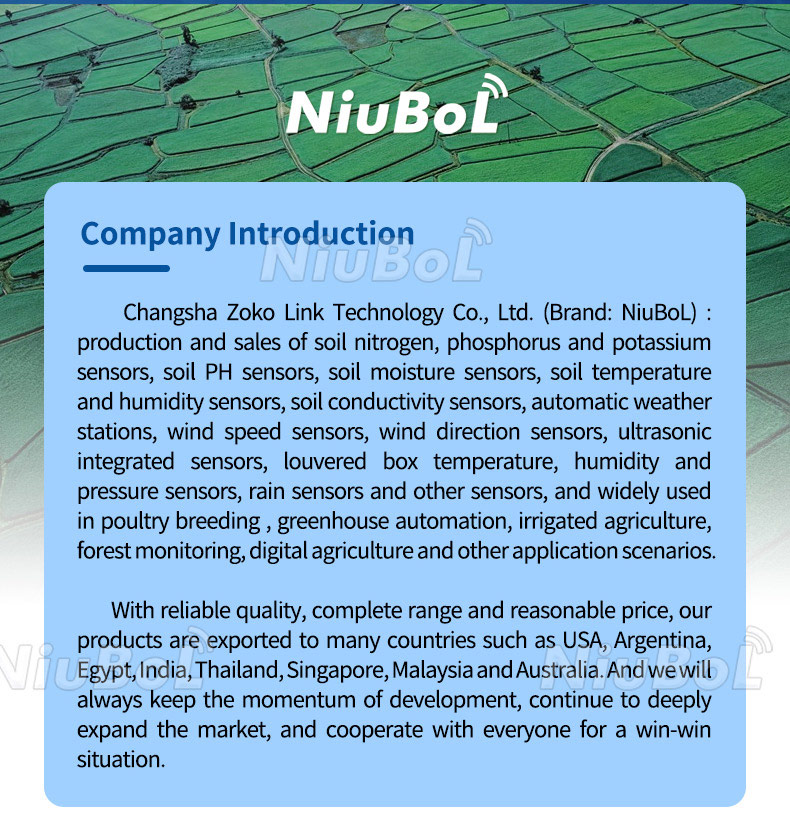
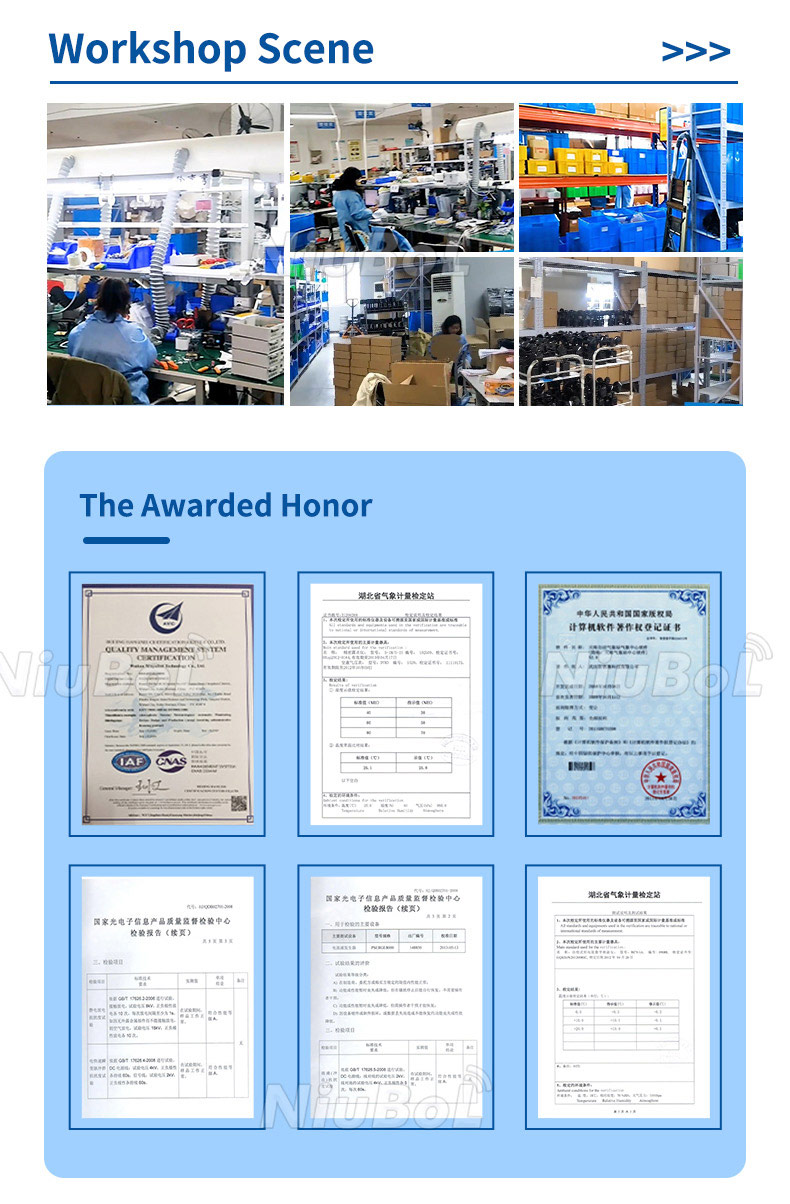

Soil test sensor is an important environmental monitoring equipment, which can help people understand the condition of the soil, as well as the content of various nutrients in the soil, and promote the growth of plants and the improvement of the ecological environment.
There are many types of soil test sensors and the common ones include soil conductivity sensors, soil pH sensors, soil salt sensors, nitrogen, phosphorus and potassium sensors(soil npk sensor). These sensors can be inserted into the soil or placed on the soil surface to measure the appropriate parameters, and the results are then transmitted electronically to a computer or other device for analysis.
The advantage of soil test sensors is that they can measure various parameters in the soil quickly and accurately, and they can continuously monitor the condition of the soil over a long period of time. This helps people to understand the condition of the soil in time and take necessary measures to improve the health of the soil, promoting the growth of plants and the improvement of the ecological environment.
In addition, Soil testing sensors can be used in scientific research, agricultural production and urban greening. In agricultural production, soil test sensors can be used to understand the condition of the soil, formulate reasonable fertiliser and irrigation plans, and improve the yield and quality of crops. In urban greening, through the use of soil test sensors can understand the soil condition of urban green space, and take necessary measures to improve the ecological environment of green space.
Precise fertilisation: Soil testing sensors can measure the content of various nutrients in the soil, and formulate a reasonable fertilisation plan according to the needs of the crops, avoiding the waste and environmental pollution caused by over-fertilisation, and at the same time ensuring that the crops are supplied with sufficient nutrients to improve the yield and quality.
Irrigation management: Through the soil test sensor can understand the soil moisture condition, according to the crop's water requirements to formulate a reasonable irrigation plan, to avoid over-irrigation or insufficient irrigation caused by crop damage or yield decline, while saving water.
Soil improvement: Soil test sensors can understand the pH value, conductivity and other parameters of the soil, according to the need for soil improvement, such as adjusting the pH value, reduce salinity, etc., to improve the quality of the soil, improve the growing environment of crops.
Pest control: Soil testing sensors can monitor the microorganisms in the soil and the dynamics of pests and diseases, timely detection and take appropriate preventive measures to reduce the harm of pests and diseases on crops, improve crop yield and quality.
Optimisation of planting structure: soil test sensors can understand the fertility of the soil and other parameters, according to the characteristics of the soil to choose suitable crops for planting, optimise the planting structure and improve the efficiency of agricultural production.
In short, Soil testing sensors in agricultural production can help people understand the soil condition, develop reasonable fertiliser, irrigation, soil improvement and other plans to improve crop yield and quality, while reducing resource waste and environmental pollution. In the future, with the continuous development of technology, the accuracy and stability of soil test sensors will be continuously improved, and more new types of sensors will also appear.
Sensors & Weather Stations Catalog
Agriculture Sensors and Weather Stations Catalog-NiuBoL.pdf
Weather Stations Catalog-NiuBoL.pdf
Related recommendations
 Multi-Depth Soil Sensor RS485
Multi-Depth Soil Sensor RS485 TDR Soil Moisture Sensor
TDR Soil Moisture Sensor Pyranometer Solar Radiation Sensors
Pyranometer Solar Radiation Sensors Soil ph sensor
Soil ph sensor Tipping Bucket Rain Gauge
Tipping Bucket Rain Gauge Air Temperature and Humidity Sensor
Air Temperature and Humidity Sensor
Screenshot, WhatsApp to identify the QR code
WhatsApp number:+8615367865107
(Click on WhatsApp to copy and add friends)
